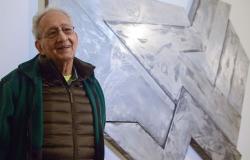Some people spend their entire lives looking for it, others plop down on a random couch, breathe a deep sigh and be it. At home. But what exactly is ‘being at home’? When is it you, what do you have to do for it, do you find it in your garden in France or deep within yourself? Writers Yolanda Entius and Fleur Bourgonje are looking for answers, both in a memoir in which they look back on the wanderings they have made on the way to a home.
Yolanda Entius (1961) describes in Around and near – Along the borders of my garden in France the different houses where she has lived, from the bungalow from her childhood, where she never felt at home but always ‘a guest’ under her father’s tyrannical rule, to a dilapidated French farmhouse that she is renovating together with her lover. In between, Entius lives in Amsterdam, first in a depressing ‘suicide flat’ in North Amsterdam, then as a roommate of a boy with whom she is secretly in love (which doesn’t work out, of course), then in various squats.
About the author
Bo van Houwelingen is a literary critic for de Volkskrant. She mainly writes about new Dutch fiction.
Great to read how Entius and four other women squatted a huge vacant building on the Singel in Amsterdam and converted it into a home. They do everything themselves: building walls, laying pipes, installing electricity – everything in perfect harmony. If only I had experienced something like that, you think – but actually Entius describes almost everything in such a way that you immediately get a sense of it, especially when it comes to her garden in France. Combat snail infestations, dig out a pond, make your own compost heap; Delicious.
Why is reading about gardening so nice? Is it the beautiful tree and plant names such as hazel, damsel in green, lime tree, horse chestnut, peachweed, tulip tree and dogwood? Does the beneficial psychological effect of gardening carry over to the pages? Is it the tension: will the lettuce be eaten by the snails this year or not? Is it the pleasant perspective of the insignificant human being against the omnipotent nature? Is it the Calvinistic allure of the hard work with which the merciless earth is turned into a paradise? The metaphor about life itself that lies within?
Loose and cheerful
Sure, but ultimately it is Entius’ style that keeps the reader interested. That firmness, which we also know from her novels, such as Abdul and Akil (2017) and Not me (2021). I think so Around and around a bit more cheerful, looser too. Perhaps because Entius can write openly about what concerns her personally, without the disguise of fiction. Then it can simply go over the compost heap: ‘We bring our garden waste to the heap, throw it on top of each other in sophisticated layers, and then fungi, bugs, bacteria and other micro-organisms finish the job. If you have a compost heap, you are never alone, then you understand that, just like the garden you love so much, you are part of a cycle that makes the call to God virtually redundant. So, I said.’ It is reminiscent of Nicolien Mizee or Gerbrand Bakker, who also write so irresistibly about their garden.
And just like Mizee and Bakker, Entius also mentions roommates, friends, lovers and family in her stories without explicitly introducing them or describing them in detail. It gives the reader the feeling of being an old acquaintance, someone who no longer needs to be explained who Carlien or Robert was. Because that’s not what it’s about at all, it’s about Entius discussing things with you as she would discuss them with a friend: not necessarily in a very deep or elaborate manner, but personal and meaningful.
From island to island
Archipelago by Fleur Bourgonje (1946) has the same approach as Entius’ book: the author looks back on important places – although in Bourgonje’s case these are not squatted houses, but islands all over the world, where she lived for a short or longer period of time. She wrote journalistic reports and novels there, such as Araya (2001) and Stromboli (2007). Bourgonje wants to write those islands together ‘with my memory as a dragnet and my pen as a push or pull boat’ into a whole, ‘a mainland’ – you can read that as the wish to moor somewhere; to come home.
We hop with Bourgonje from island to island, starting from Île de Ré, where she does volunteer work as a young girl, to Isla del Sol, where she climbs a mountain and barely survives altitude sickness, to Bali, where she has to perform at a literary festival, to Cuba, where she falls in love, to many more islands, up to Texel, where she settles down to write it all down.
Bourgonje starts strongly, with convincing descriptions of her childhood in a farming village in the Gelderse Valley. These are the years after the war, a time of cleaning rather than chatting. Father forges iron, mother cooks lard. It is best for a fire to break out after school: then the children can enjoy watching. Bourgonje wants to show the reader what life was like, and she succeeds in doing so – she writes unambiguously and earthily.
But it gradually becomes more watery, as one island is exchanged for the next more and more quickly and each crossing lengthens the story more. It is not clear why the writer chose that specific island with that specific memory – its meaning in the bigger picture remains unclear. Especially because Bourgonje writes somewhat reservedly; important figures such as her husband or child are given neither name nor face. The descriptions therefore seem random, making it increasingly difficult to take interest in them – oh, another island, what now? ‘You leave somewhere, you arrive somewhere,’ writes Bourgonje, unintentionally but aptly summarizing her book.
The difference
Yolanda Entius and Fleur Bourgonje, two women you don’t know personally, who you don’t necessarily need to know. Their lives are no more special, spectacular or exciting than your own life or that of the people around you. Yet Entius manages to captivate you from beginning to end with her memoir, while with Bourgonje at a certain point you think: all well and good, but what should I do with it?
Why is one autobiographical work interesting to read and another not? Of course, style is decisive. Reading a poorly written memoir is like being pinned down in a corner of a bar by someone intoxicatedly feeding you his confusing life story. Or worse: by someone who goes through his CV in detail with you. But that’s not the only thing. Just look at Bourgonje: her style is – apart from a few slip-ups – not bad at all. The portrayal of her youth and young years is not inferior to that of Entius; they describe similar experiences – dealing with a difficult or closed father, adventurous hitchhiking holidays, packing up and moving for the umpteenth time – in the same pleasant, mildly nostalgic way.
But Bourgonje gradually excludes the reader. She no longer writes for us, to show us something, but for herself, to sort things out. Or in her own words: ‘breaking the distance between my islands’ and ‘healing the cracks’. She seems to be talking more to herself than to the reader, who is just waiting for her to finally come home. At Entius, on the other hand, the door is wide open. You don’t feel like an uninvited guest, but you join her life, her stories, as if you were always there: at home.
Yolanda Entius: Around and near – Along the borders of my garden in France. Van Oorschot; 304 pages; €24.99.
Fleur Bourgonje: Archipelago – a woman, a story, a life. Magonia; 250 pages; €23.95.
Tags: Review Yolanda Entius writes infectiously French garden
-






